25 Breastfeeding Questions and Answers
Everyone is aware that breastfeeding a child is important and beneficial for the child’s health. However, for some, particularly first-time moms, it can pose certain challenges. The initial days of nursing can be a baffling time, with lots of queries abound. Learning the concept and process of breastfeeding can help you gain more confidence, which can help you tackle the many challenges of breastfeeding. While there are infinite breastfeeding FAQs, we have tried to answer the most important and frequently asked questions about breastfeeding. Join us as we bust some myths around breastfeeding and answer the top and most suitable lactation questions and answers.
25 Common Breastfeeding Questions and Answers
Decoding breastfeeding through some commonly asked questions on breastfeeding may help you gain some useful insight into the matter:
1. When will the breastmilk come in?
It’s common to hear the phrase – “the breastmilk hasn’t come in”. But the use of the phrase is incorrect. In most cases, women produce colostrum, or first milk, during the initial days following childbirth (1). Colostrum is a thick, milky substance rich in antibodies, which precedes the production of actual breast milk. The body usually starts to produce breastmilk in a couple of day’s time after giving birth.
2. Does the size of the breast affect milk production?
No, the size of the breast does not affect milk supply. Most women produce enough milk as per their baby’s needs, irrespective of their breast size. Small-breasted women can produce an oversupply of milk, while some large-breasted women may have a tough time producing plentiful.
3. Why do some lactating moms yield more breastmilk than others?
According to doctors, different breasts can have diverse storage capacities. Moreover, the quantity of milk supply is subject to mammary tissue. But moms need not worry unnecessarily. Normally, lactating mothers are capable of producing what their baby requires. The supply of breast milk is also stimulated by breastfeeding and pumping. The more you breastfeed or pump breast milk, the more you’ll stimulate your breasts to produce milk (2). However, if you suspect your milk supply is low, seek expert guidance to prevent the reduction of milk production.
4. Shouldn’t breastfeeding be easy?
Breastfeeding is considered the most natural thing. But it may not be easy for everyone, mainly in the first few weeks after delivery. It is an acquired skill which nursing moms are required to learn with patience and practice. While for some moms, it may come as an easy affair, others may take some time to get used to it (3). For some, the initial stages can be uncomfortable and painful, especially when they may be coping with postpartum issues. Breastfeeding usually does become easier with time and experience.
5. Is my baby truly drinking?
A baby may remain in the breast sometimes, but not just for nutritional reasons. Some babies seek comfort from suckling the breast. They may nurse for long periods and use the breast as a pacifier. In case you are unsure whether your baby is truly nursing, check for certain things, such as his jaw moving up and down when he sucks, whether he’s pausing for swallowing, if the breast is feeling lighter after feeding, and so on, as suggested by the NHS (4). You can learn whether your baby is feeding properly by checking their diapers. The more the baby feeds, the more they soil the diapers with pee and poo (5).
6. Am I producing sufficient milk for my baby?
Most women commonly worry if they are producing enough milk. You can take note of a few signs from the American Pregnancy Association (6):
- If your newborn has 7 to 8 wet nappies per day
- If your breasts feel full between feeds and drain after nursing
- If your baby is steadily gaining weight each week
- If your baby appears to require his next feed after a realistic gap (about 2 to 3 hours)
- If your baby seems content and sleepy after feeds
- If your baby’s cheeks look filled while swallowing instead of sucked in
Please note – Breasts feeling full between feeds and draining after nursing will be dependent from mother to mother. Similarly, a baby requiring his next feed after a realistic gap will depend from baby to baby. Some babies also cluster feed during growth spurts.
7. How can I enhance my low supply?
Milk supply can be short for several reasons. In case you are worried you are not producing adequate milk, try some things like (7):
- Feeding your baby frequently- the more you nurse, the more you may produce.
- Attempt pumping for a few minutes right after your baby finishes feeding.
- Make sure you consume a balanced diet. Drink lots of healthy fluids.
- Remember to take a suitable rest and get quality sleep.
8. How to avoid and soothe engorged breasts?
Some women may experience painful breasts because they are too full. Breast engorgement usually happens when a mom produces more milk than what a baby can use or if a baby abruptly starts feeding less than normal and milk is not entirely emptied (8). Breasts may also swell up due to blocked ducts. In such instances, you can try cold compresses or cabbage leaves to reduce the swelling. The Cleveland Clinic suggests using a breast pump or a hand express technique to release a bit of milk (9).
9. How to prevent colic while breastfeeding?
In case your baby gets colicky while nursing, consider looking into what you are eating. Your baby can be intolerant to certain foods like cow’s milk, cauliflower, chocolate, broccoli, onions, and spicy foods which may be making him colicky. Consult your paediatrician about eliminating foods from your diet. You can try doing so one by one and then wait to notice whether your baby’s colicky signs improve or not.
10. How to cure sore nipples?
While curing is a reactive measure to avoid sore or cracked nipples, one must practise the deep latch technique. Sore or cracked nipples can make nursing painful. You can contemplate changing your regular breastfeeding positions. Allow your nipples to air dry after feeding. Avoid tight-fitting bras and shirts. Go for soft cotton fabric nursing bras with drop-down cups that make breastfeeding easier (10). As per La Leche League, breastfeeding moms should have at least at least three nursing bras. Regularly change your nursing pads. You can also rub some manually expressed breast milk on your sore nipples to help them heal.
11. Can I breastfeed if my nipples are bleeding?
Sometimes, cracked nipples can give way to bleeding. But you can still breastfeed, although it may be quite uncomfortable. A slight measure of blood in breast milk may not harm the baby. Nevertheless, cracked nipples can be the result of improper latching. You may like to take a few sessions to educate yourself about appropriate latching techniques. However, it is important to avoid breastfeeding with cracked or bleeding nipples if you have hepatitis B or hepatitis C, as it could infect the baby (11).
12. How to obtain a good breastfeeding latch?
Breastfeeding shouldn’t involve any pain. You can experience a stinging or tingling sensation while nursing. But any pain may indicate that the baby is not latching correctly. Open his mouth wide (pull down gently on his chin) so that he may take in as much of the areola and breast as possible. In case his mouth doesn’t open up enough, the latch may not be proper, causing him to nurse off the nipple which can lead to a cracked nipple.
13. Are painful lumps in the breast normal?
Plugged or blocked ducts can trigger the development of painful lumps or mastitis, as they prevent the milk from properly draining out of the breast (12). The condition can improve if you feed more often. Other treatments can include applying a warm compress or massaging the affected breast to encourage the milk flow. Always ensure your breasts are drained suitably after a nursing session.
14. What to eat or drink when breastfeeding?
Moderation should be the guiding principle when it comes to eating food while breastfeeding. The Mayo Clinic suggests opting for a well-balanced diet rich in protein, like eggs, lean meat, fish and seafood low in mercury, dairy, beans, etc., whole grains, and fresh fruits and vegetables (13). Refrain from food items that are likely to prompt bloating, as they can make your baby colicky. Drink ample amounts of water, fresh juices, and soups.
15. When to go for a nipple shield?
Your doctor may recommend the use of nipple shields to help you deal with certain underlying breastfeeding issues, such as flat nipples, engorgement, sore nipples, or if the infant has trouble latching (14). However, they should not be used on a long-term basis and only under the supervision of an expert.
16. When should I start pumping?
There are no set rules to it. Many moms may prefer pumping as it gives them the convenience of someone else feeding their baby if they’re unable to at the time. Some may choose to pump to increase their milk supply. In case you adopt pumping, trying doing it right after a feed, about two times a day, to accumulate sufficient stored milk for a nursing session.
17. What is breastfeeding jaundice?
Newborn babies, at times, become jaundiced due to high bilirubin levels, causing a yellow tinge to appear in their eyes and skin. In some cases, jaundice can get worse owing to poor breastmilk supply or insufficient nursing during the baby’s early weeks after birth. This leads to extreme weight loss and dehydration. In the case of such instances, nursing moms should seek a doctor’s help to make their breastfeeding more effective.
18. For how long should I breastfeed?
The WHO proposes about six months of absolute dedicated breastfeeding before introducing other foods (15). Subsequently, the baby may receive other complementary solids with continual breastfeeding until about 2 or more years of age. However, it is more of a personal choice.
19. Should I stop breastfeeding if I am sick?
Breastfeeding moms need not stop nursing even when they fall sick. Certain situations may warrant discontinuation, like active tuberculosis, HIV, untreated brucellosis, chemotherapy for cancer, taking illicit drugs, herpes lesions on the breast, etc (16). But simply having a fever or cold should not be a cause to stop nursing unless a doctor advises you to do otherwise (17).
20. How much should a newborn be feeding every day?
Ideally, a newborn should be feeding about 8 to 12 times every day for the initial months. Your baby will possibly feel hungry after 2 to 4 hours, consuming around 50 ml every feed (18). Gradually he may progress to about 120 ml towards the end of the early months. Expect to increase approximately 30 ml every month until the baby is 6 months of age.
21. Is it okay for the colostrum, which comes first out of the breastmilk, to come in low quantity?
In the early days of breastfeeding, moms produce small amounts of colostrum, a protein-rich, yellowish milk that helps protect newborns from infections. This milk is bright yellow due to its high beta-carotene content and immunoglobulins (19). In the early days of breastfeeding, moms produce small amounts of colostrum. So, there is nothing to worry about. During the first few days, you may expect the amount of colostrum from a few drops to a few teaspoons. As breastfeeding or pumping continues, the milk begins to change, becoming what’s known as transitional milk.
22. For how long can I store my pumped breast milk?
As per the CDC, if you are pumping breast milk to store for future use, you can store it in a refrigerator for up to four days, in a basic freezer for 3-6 months, and for 6-12 months in a deep freezer (20). Once you take out stored breast milk, it is good for 24 hours at room temperature, and it is ideal to thaw the amount you want to consume and leave the rest in the freezer. Most moms date the breast milk packets with time and date to maintain the accuracy of storage.
23. Should I wake my baby to breastfeed if he is sleeping?
Babies, in their initial days of birth, sleep for long stretches and wake up only for feeding, peeing, and pooping. Many experts recommend occasionally waking the babies for feeding in the first few days after their birth, if they sleep at a stretch of more than four hours, to feed them timely to ensure their proper nutrition and stimulate breast milk production (21). As they grow, it is not necessary to wake them up for feeding; they can wake up on their own when they get hungry.
24. Are medications and vaccinations safe while breastfeeding?
Although most medications and vaccinations are safe during breastfeeding, some may transfer into breast milk, so it is necessary to consult a doctor before taking any medication, dietary supplement, herbal medicine, vitamins, or vaccination (22). Decongestants can impact the milk supply, so it is wise to inform the doctor before the vaccination and medication. Similarly, do not consume any OTC medicine without a doctor’s consultation.
25. How long does it take for periods to surface after childbirth?
Moms who choose not to breastfeed may have their menstruation returned about six to 12 weeks after childbirth. However, if you’re exclusively breastfeeding, your period might not come back for several months or until you stop breastfeeding or start them on solids (23). It’s important to know that even without your period, you can still get pregnant while breastfeeding, as ovulation occurs before menstruation. Once it’s safe to resume sexual activity (typically four to six weeks postpartum after a vaginal delivery), you can discuss birth control options with your doctor that are compatible with breastfeeding unless you’re planning for another baby.
Breastfeeding helps both the mother and the baby as it can safeguard the mother and infant from many diseases. Therefore, nursing moms should continue to breastfeed their babies for as long as possible.
References/Resources:
1. Breastfeeding and Delayed Milk Production; Johns Hopkins Medicine; https://www.hopkinsmedicine.org/health/conditions-and-diseases/breastfeeding-and-delayed-milk-production
2. Breastfeeding FAQs: Supply and Demand; Nemours KidsHealth; https://kidshealth.org/en/parents/breastfeed-supply.html
3. Breastfeeding vs. Formula Feeding; Nemours KidsHealth; https://kidshealth.org/en/parents/breast-bottle-feeding.html
4. Breastfeeding: is my baby getting enough milk?; NHS; https://www.nhs.uk/conditions/baby/breastfeeding-and-bottle-feeding/breastfeeding-problems/enough-milk/
5. Breastfeeding FAQs: Getting Started; Nemours KidsHealth; https://kidshealth.org/en/parents/breastfeed-starting.html
6. Do I Have a Low Milk Supply?; American Pregnancy Association; https://americanpregnancy.org/healthy-pregnancy/breastfeeding/low-milk-supply/
7. How to increase breastmilk supply; Pregnancy Birth & Baby; https://www.pregnancybirthbaby.org.au/increasing-your-breast-milk-supply
8. 6 tips to treat breast engorgement while breastfeeding; OSF Healthcare; https://www.osfhealthcare.org/blog/6-tips-to-treat-breast-engorgement-while-breastfeeding/
9. Breast Engorgement; Cleveland Clinic; https://my.clevelandclinic.org/health/diseases/breast-engorgement
10. Maternity bras and nursing bras: what you need to know; NCT; https://www.nct.org.uk/pregnancy/worries-and-discomforts/common-discomforts/maternity-bras-and-nursing-bras-what-you-need-know
11. Sore, cracked or bleeding nipples; Pregnancy Birth & Baby; https://www.pregnancybirthbaby.org.au/sore-cracked-or-bleeding-nipples
12. Breastfeeding Info Lumps and Mammograms; La Leche League International; https://llli.org/breastfeeding-info/lumps-and-mammograms/
13. Breastfeeding nutrition: Tips for moms; Mayo Clinic; https://www.mayoclinic.org/healthy-lifestyle/infant-and-toddler-health/in-depth/breastfeeding-nutrition/art-20046912
14. Chow S, Chow R, Popovic M, Lam H, Merrick J, Ventegodt S, Milakovic M, Lam M, Popovic M, Chow E, Popovic J. The Use of Nipple Shields: A Review. Front Public Health.; PubMed Central; https://www.ncbi.nlm.nih.gov/pmc/articles/PMC4607874/; October 2015
15. Breastfeeding; WHO; https://www.who.int/health-topics/breastfeeding#tab=tab_1
16. Serious Illnesses and Breastfeeding; American Academy of Pediatrics; https://www.healthychildren.org/English/ages-stages/baby/breastfeeding/Pages/Serious-Illnesses-and-Breastfeeding.aspx
17. Is it Safe to Breastfeed if I Have the Flu?; Nemours KidsHealth; https://kidshealth.org/en/parents/flu-breastfeeding.html
18. How Much and How Often to Breastfeed; CDC; https://www.cdc.gov/nutrition/infantandtoddlernutrition/breastfeeding/how-much-and-how-often.html
19. Colostrum; ScienceDirect; https://www.sciencedirect.com/topics/medicine-and-dentistry/colostrum
20. Breast Milk Storage and Preparation; CDC; https://www.cdc.gov/breastfeeding/breast-milk-preparation-and-storage/handling-breastmilk.html
21. Should I wake my newborn for feedings?; Mayo Clinic; https://www.mayoclinic.org/healthy-lifestyle/infant-and-toddler-health/expert-answers/newborn/faq-20057752
22. Is it Safe to Use Medicine During Breastfeeding?; Drugs.com; https://www.drugs.com/drug-safety-breastfeeding.html
23. Will my period change after pregnancy?; UT Southwestern Medical Center; https://utswmed.org/medblog/period-changes-after-pregnancy/
One Breast Produce more Milk
Breastfeeding with Small Breasts
Breastfeeding with Large Breasts
How to Breastfeed a Baby at Night?
Breastfeeding Frequency by Age Chart
Most Common Breastfeeding Problems & Their Solutions
Was This Article Helpful?
Parenting is a huge responsibility, for you as a caregiver, but also for us as a parenting content platform. We understand that and take our responsibility of creating credible content seriously. FirstCry Parenting articles are written and published only after extensive research using factually sound references to deliver quality content that is accurate, validated by experts, and completely reliable. To understand how we go about creating content that is credible, read our editorial policy here.






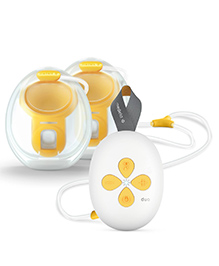
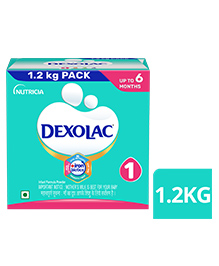
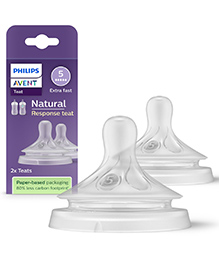
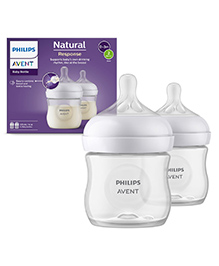
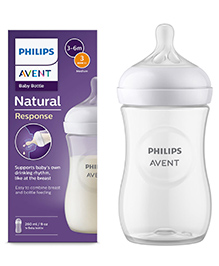
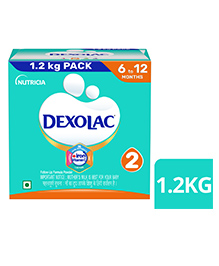
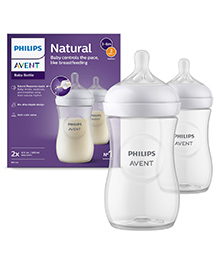
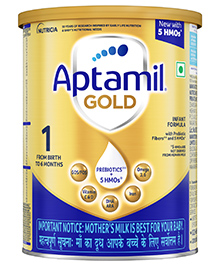
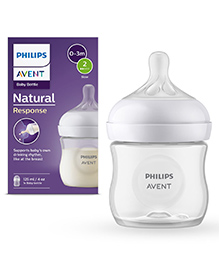
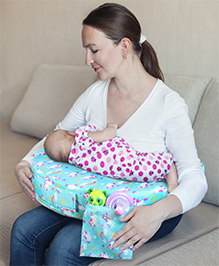


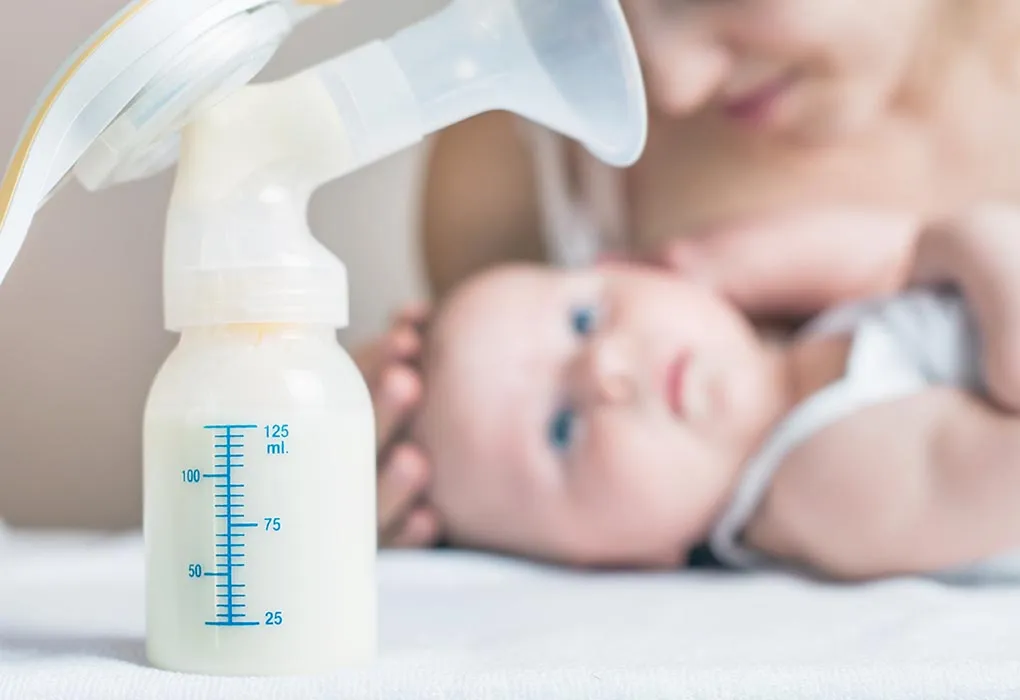








.svg)


















